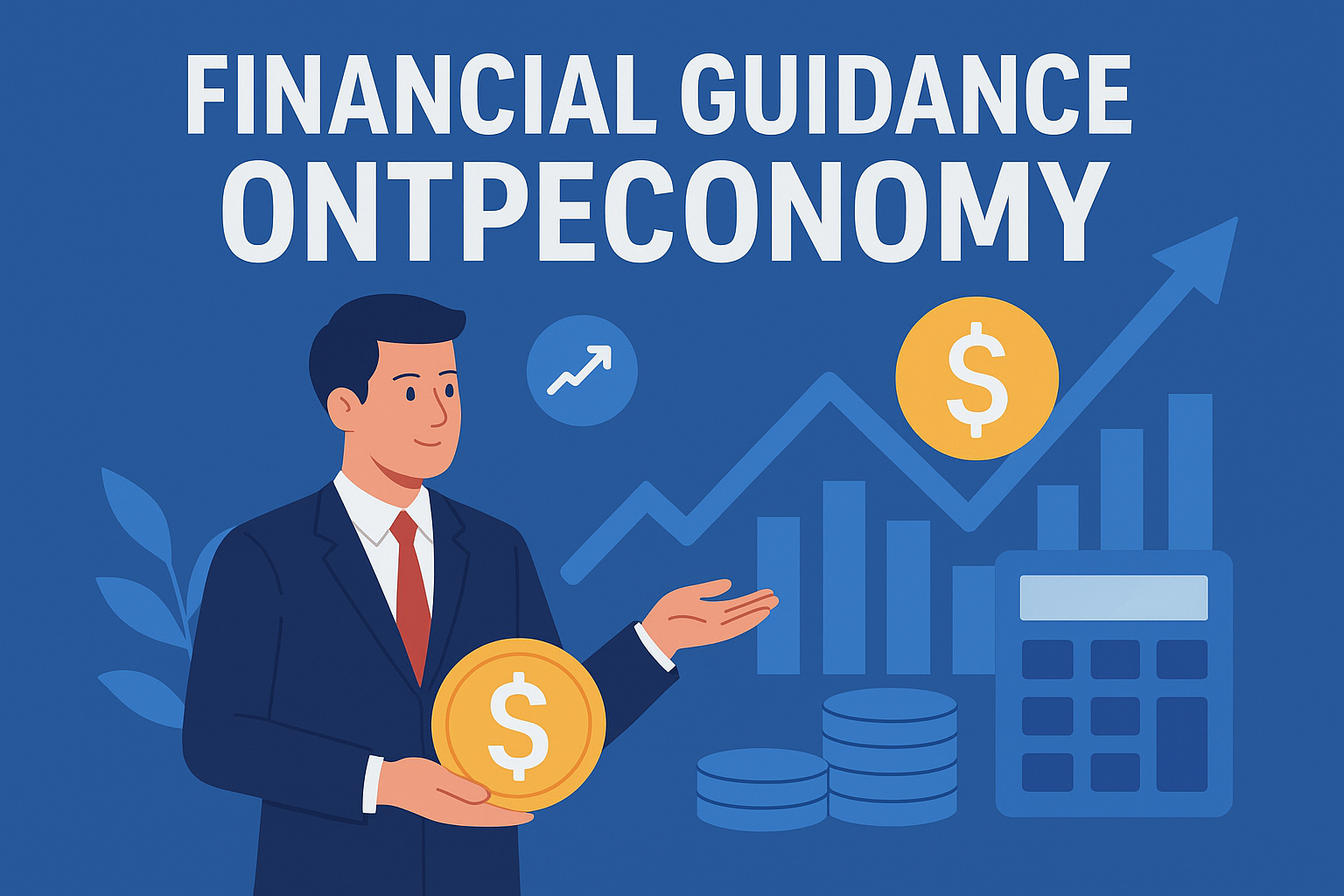The modern financial landscape is more complex than ever before, and individuals across the globe are searching for strategies that allow them to navigate money management with clarity and confidence. This is where the concept of financial guidance ontpeconomy becomes highly relevant. Unlike traditional financial tips that focus only on personal budgeting or saving, this concept takes a holistic view by connecting individual financial choices with the broader economic framework.
Financial guidance ontpeconomy is not simply about saving more or spending less. It is about integrating financial literacy, economic understanding, digital transformation, and smart investment practices into one unified system. It encourages people to look at their personal financial behaviors not in isolation, but as part of an interconnected economy where decisions at the micro level influence and are influenced by global macroeconomic trends.
In this long article, we will explore what financial guidance ontpeconomy means, why it is essential in today’s digital and global age, and how individuals, businesses, and societies can use it to create sustainable financial futures.
Understanding the Core of Financial Guidance Ontpeconomy
At its heart, financial guidance ontpeconomy emphasizes knowledge, awareness, and adaptability. It blends financial literacy with broader economic insights so individuals and organizations can make informed, resilient, and growth-oriented financial decisions. Let’s break down the major elements that define this concept:
Financial Literacy as the Foundation
No guidance can work without strong literacy. Understanding how money flows, how to budget effectively, and how to manage credit are the first steps. Financial literacy under financial guidance ontpeconomy empowers people to read bank statements, evaluate loan offers, and distinguish between good and bad debt.
Economic Awareness and Its Importance
Ontpeconomy takes financial guidance a step further by focusing on the broader economic environment. For example, inflation affects the value of money, interest rates determine the cost of borrowing, and unemployment rates reflect economic health. When individuals understand these concepts, they can align personal decisions with larger economic patterns.
Role of Digital Transformation
Technology has revolutionized how people deal with money. Online banking, fintech applications, AI-driven investment platforms, and blockchain are no longer luxuries—they are everyday tools. Financial guidance ontpeconomy recognizes this digital shift and encourages the use of secure, efficient, and innovative technologies to handle transactions, monitor spending, and grow investments.
Investment and Wealth Creation
Beyond saving, financial guidance ontpeconomy emphasizes wealth creation through diversified investment strategies. Stocks, bonds, real estate, cryptocurrencies, and mutual funds all offer opportunities for growth. However, successful investment requires risk assessment, proper timing, and a clear understanding of how global markets operate.
Risk Management and Protection
Another key pillar is managing risks. Life is unpredictable, and economic fluctuations are inevitable. Insurance policies, emergency funds, and retirement savings form the safety nets that protect individuals and families. Without these measures, financial stability can easily collapse during crises.
Benefits of Financial Guidance Ontpeconomy
When applied consistently, financial guidance ontpeconomy produces benefits not only for individuals but also for entire societies.
-
Improved Financial Security
People who follow structured guidance are less likely to fall into debt traps. They build savings, create emergency funds, and ensure financial independence. -
Informed Decision-Making
Through better knowledge of economic and financial principles, individuals can make smart investment and spending choices, avoiding impulsive actions that harm long-term stability. -
Resilience During Economic Shifts
Recessions, inflation, or policy changes often catch people unprepared. However, financial guidance ontpeconomy provides the foresight needed to adjust strategies when economic conditions shift. -
Contribution to a Stronger Economy
When individuals and businesses manage money responsibly, the entire economy benefits. Healthy financial behavior leads to more investments, job creation, and overall stability. -
Sustainable Wealth Building
Rather than focusing on short-term gains, ontpeconomy promotes long-term growth, ensuring that wealth is built and preserved across generations.
Challenges in Applying Financial Guidance Ontpeconomy
While the concept is powerful, its application faces challenges.
-
Limited Awareness: Many people still lack basic financial literacy and economic knowledge, making it hard to adopt advanced guidance strategies.
-
Over-Reliance on Technology: Although fintech tools are convenient, not everyone uses them wisely, leading to security risks or poor investment decisions.
-
Economic Volatility: Even with strong financial plans, unexpected crises such as global recessions or pandemics can disrupt progress.
-
Accessibility Issues: In many regions, financial resources, advisory services, and digital platforms are not easily accessible, leaving people behind.
The Role of Professionals in Financial Guidance Ontpeconomy
Financial advisors, economists, and fintech innovators play a crucial role in this system. They interpret complex data, provide personalized strategies, and design digital platforms that make financial management easier. Additionally, governments and institutions have a responsibility to promote financial literacy programs, making knowledge available to wider populations.
In recent years, AI-driven platforms have emerged, offering customized guidance by analyzing spending habits, investment patterns, and risk profiles. This democratizes access to financial wisdom that was once limited to wealthy individuals with private advisors.
Practical Steps for Individuals to Adopt Financial Guidance Ontpeconomy
Individuals can start applying this concept through simple yet powerful steps:
-
Track Expenses and Create Budgets
Understanding where money flows every month is the first step toward smarter decisions. -
Stay Updated on Economic News
Following inflation rates, interest changes, and market updates provides context for better financial choices. -
Leverage Technology
Using mobile apps, digital wallets, and investment platforms can make financial management efficient and transparent. -
Diversify Investments
Avoid putting all resources in one place. Diversification ensures that risks are balanced. -
Build Emergency and Retirement Funds
Future planning ensures resilience against unexpected events and long-term financial security.
Future of Financial Guidance Ontpeconomy
The future holds great potential for the integration of financial guidance ontpeconomy with advanced technologies. Artificial intelligence, blockchain, and big data analytics are expected to redefine how people handle finances. For example, AI-powered apps may soon provide real-time investment recommendations tailored to personal goals and changing economic conditions.
Moreover, governments are increasingly realizing the need to promote financial literacy as part of national economic strategies. As more people become financially educated, economies will become stronger and more resilient.
The vision of financial guidance ontpeconomy is not just about individual growth—it is about building societies that are financially aware, economically stable, and technologically empowered.
Read also: The Fascinating World of Cyanová: Meaning, Symbolism, and Modern Relevance
Conclusion
Financial guidance ontpeconomy represents a modern, holistic approach to managing money in a complex and interconnected world. By combining financial literacy, economic awareness, technology, and risk management, this concept equips individuals and businesses with the tools they need to thrive.
It is not merely a strategy for surviving economic uncertainty—it is a roadmap for long-term financial empowerment. With proper application, individuals can secure their futures, businesses can grow sustainably, and societies can achieve economic balance.
In the end, embracing financial guidance ontpeconomy is not just a personal choice but a collective step toward stability, resilience, and prosperity in an ever-changing global economy.


